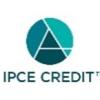
2023 Together - P445 - Data-Enabled Health Equity: Creating a Framework for Action - On Demand
The COVID-19 pandemic exacerbated existing preventable health disparities and highlighted the urgent need to eliminate them. Addressing disparities requires a multifaceted, data-driven approach that takes demographics into account. This project used the electronic health record (EHR) and data visualization tools to identify existing health disparities among demographic groups at Loyola Medicine and measure results of the hospital-level initiatives developed based on those findings. Our project led to several major organizationwide improvement initiatives. For example, we found a significant disparity in low-risk cesarean birth rates (Joint Commission measure PC-02): White patients had a rate of 24.1%, compared with 34.3% for Hispanic or Latino patients and 36.9% for Black patients. Data-guided education and improved risk stratification methods helped reduce the gaps by approximately 8.1% over nine months. It is important to highlight that our approach to improving health equity is an ongoing process that requires continuous monitoring and adaptation.
Target Audience
- Healthcare Quality Professionals
- Nurses
- Pharmacists
- Pharmacy Technicians
- Physicians
- Other Healthcare Professionals
Learning Objectives
Describe the evolution of the use of data and visualization tools to identify and combat health disparities.
Discuss the challenges of and lessons learned about the collection, standardization and stratification of complex demographic and socioeconomic data.
Outline the use of analytics in identifying the root cause of disparities and helping to improve stakeholder engagement.
Faculty
Matthew Klein, MPH, Data Scientist, Loyola Medicine, Maywood, Ill.
Nasir Khan, MBBS, MPH, Regional Director, Clinical Quality Analytics, Loyola Medicine, Maywood, Ill.
Kevin Smith, MD, MBA, Chief Medical Officer, Loyola University Medical Center, Maywood, Ill.
Disclosure

Credit Types

Interprofessional Continuing Education (IPCE)
This activity was planned by, and for, the healthcare team, and learners will receive 0.50 Interprofessional Continuing Education (IPCE) credits for learning and change.
Nurses (CNE)
Vizient, Inc. designates this enduring material for a maximum of 0.50 ANCC contacts hours.
Pharmacists (CPE)
Vizient, Inc. designates this enduring material for a maximum of 0.50 contact hours for Pharmacists.
Universal Activity Number:JA0006103-0000-23-228-H04-P
Pharmacy Technicians (CPE)
Vizient, Inc. designates this enduring material for a maximum of 0.50 contact hours for pharmacy technicians.
Universal Activity Number: JA0006103-0000-23-228-H04-T
Physicians (CME)
Vizient, Inc. designates this enduring material for a maximum of 0.50 AMA PRA Category 1 Credit(s)™. Physicians should claim only the credit commensurate with the extent of their participation in the activity.
Healthcare Quality Professionals (CPHQ)
This activity is approved by NAHQ® for 0.50 CPHQ CE credits.
Other Healthcare Professionals (General CE Credit)
Vizient, Inc. will award a maximum of 0.50 contact hours to all other healthcare professionals who successfully complete the activity. These individuals will receive a Certificate of Participation indicating the maximum credits available.
Many state licensing boards and credentialing bodies accept certificates of participation from accredited CE activities to meet CE requirements for license renewals and re-certification. It is the responsibility of the participant to contact their state licensing board and/or certifying body for verification on credit eligibility reciprocity.
Available Credit
- 0.50 ACPE Pharmacist
- 0.50 ACPE Pharmacy Technician
- 0.50 AMA PRA Category 1 Credit™
- 0.50 ANCC
- 0.50 CPHQ – Certified Professional Healthcare Quality
- 0.50 General CE - Attendance
- 0.50 Interprofessional Continuing Education (IPCE)

 Facebook
Facebook X
X LinkedIn
LinkedIn Forward
Forward